New Defence Secretary appointed
September 23rd, 2024Courtesy Adaderana
Air Vice Marshal (Retired) Sampath Thuyacontha has been appointed as the new Secretary of Defence.
Thuyacontha joined the Sri Lanka Air Force on 17th of May 1988 to the 19th Intake as an Officer Cadet and was commissioned as a Pilot Officer in the General Duties Pilot Branch in the year 1990.
After completion of training in the year 1990 he was deployed for flying duties as an operational pilot in Bell 212/412 helicopters. In 2001, he was posted to No 9 Attack Helicopter Squadron, Sri Lanka Air Force Base Hingurakgoda as the Second in Command and later was appointed as the Commanding Officer in the year 2005.
During his long tenure, he actively participated for all major operations which includes Humantarian War to liberate North and East and he managed to log more than 7000 flying hours as an Operations/ VIP and Attack Helicopter Pilot of Sri Lanka Air Force.
Air Vice Marshal Thuyacontha also served as the Defense Adviser to the High Commission of Sri Lanka in Islamabad, Pakistan for a period of two years and as the Chief Instructor of the Defence Services Command and Staff Collage in the year 2014.
For his individual acts of gallantry and bravery in the face of the enemy during the Humanitarian Operations he was decorated with Weera Wickrama Vibhushanaya” (WWV), Rana Wickrama Padakkama” (RWP) and Rana Sura Padakkama” (RSP) on several occasions.
Ravi Seneviratne appointed Secretary of Public Security
September 23rd, 2024Courtesy Adaderana
The newly-elected President Anura Kumara Dissanayake has appointed former Senior Deputy Inspector General (DIG) Ravi Seneviratne as the Secretary to the Ministry of Public Security.
Seneviratne had previously served as the Senior DIG in charge of the Criminal Investigation Department (CID).
Former Sri Lankan President Gotabaya arrives in Kathmandu – report
September 23rd, 2024Courtesy Adaderana
Former president of Sri Lanka Gotabaya Rajapaksa has landed at the Tribhuvan International Airport in Kathmandu, Nepal via Sri Lankan Airlines on Monday.
A source within the embassy stated that he has plans to visit different Buddhist sites and is also scheduled to visit Bharatpur.
It is reported that Rajapaksa is believed to have close ties with the Chaudhary Group, which has investments in various sectors in Sri Lanka and has been inviting him to visit Nepal. This trip is more personal and family-oriented rather than political.
Rajapaksa will be staying at Hotel Vivanta in Jhamsikhel today.
Following a massive uprising in Sri Lanka, Rajapaksa had to flee the country two years ago. He later returned to Sri Lanka.
In Sri Lanka, the newly elected President Anura Kumara Dissanayake, who is Marxist-leaning, was sworn in today.
Source: myRepublica
–Agencies
ලංකා වාණිජ මණ්ඩලයෙන් නව ජනපතිට යොමුකළ ලිපිය (වීඩියෝ)
September 23rd, 2024Courtesy Hiru News
ජනාධිපති අනුර කුමාර දිසානායකගේ ප්රතිපත්ති ප්රකාශයට සහ ලංකා වාණිජ මණ්ඩලයේ ප්රතිපත්ති ප්රකාශයට අනුකූලව ආර්ථිකයේ ක්ෂේත්ර 10ක් සඳහා ප්රමුඛත්වය ලබා දෙන ලෙස ලංකා වාණිජ මණ්ඩලය පවසනවා.
ලිපියක් යොමුකරමින් ලංකා වාණිජ මණ්ඩලය පවසන්නේ නව ජනාධිපතිවරයාගේ පළමු මාස හයක කාලය තුළ එම කරුණු විසඳිමට කටයුතු කරන ලෙසයි.
ශ්රී ලංකාවේ 9 වැනි විධායක ජනාධිපතිවරයා වශයෙන් පත්වූ අනුර කුමාර දිසානායක මහතාගේ ප්රතිපත්ති ප්රකාශයට සහ ලංකා වානිජ මණ්ඩලයේ Vision 2030 ප්රතිපත්ති ප්රකාශයට අනුකූලව, ධුර කාලයේ පළමු මාස හය තුළ ආර්ථිකයේ ක්ෂේත්ර 10ක් සඳහා ප්රමුඛත්වය ලබා දෙන ලෙස ලංකා වාණිජ මණ්ඩලය ජනාධිපතිවරයාට නිර්දේශ කර තිබෙනවා.
මෑතකදී වාණිජ ණය හිමියන් විසින් නිකුත් කරනු ලැබූ නිවේදනය මත පදනම්ව, බාහිර ණය ප්රතිව්යුහගතකරණය සම්පුර්ණ කිරීම, සාර්ථක තුන්වැනි සමාලෝචනයක් සහ සිව්වැනි වාරිකය ලබා ගැනීමේ අරමුණින් ජාත්යන්තර මුල්ය අරමුදලේ විස්තීර්ණ ණය වැඩසටහන සමග ඉදිරියට යාම වාණිජ මණ්ඩලයේ පළමු ඉල්ලීමයි.
වත්මන් බදු ගෙවන්නාට බරක් නොවන සේ, ප්රතිපත්ති ප්රකාශයේ දක්වා ඇති පරිදි රාජ්ය වියදම්වල අපේක්ෂිත වෙනස්කම් සහ විශ්වසනීය ආදායම් යෝජනා ක්රියාත්මක කිරීම, RAMIS සහ SVAT වැනි ආදායම් එකතු කිරීම් සම්බන්ධ කරුණු යළි සමාලෝචනය කිරීම දෙවැනි යෝජනාව ලෙසින් වාණිජ මණ්ඩලය නව ජනාධිපතිවරයාට යෝජනා කර තිබෙනවා.
On Arrival Visa ගැටලුව වහාම විසඳීම, ඩිජිටල් පොදු යටිතල පහසුකම් සහ ඩිජිටල් හැඳුනුම්පත ක්රියාත්මක කිරීම, ජාතික තනි දොර වෙළෙඳ කවුළුව (National Single Window for Trade) ක්රියාත්මක කිරීමට කැපවී ඒ තුළින් ජාත්යන්තර වෙළෙඳාමට මෙන්ම ජනතාවට ප්රතිලාභ සලසා දීම, ප්රතිසංස්කරණ සඳහා අවශ්ය අවකාශය නිර්මාණය කරදීම වෙනුවෙන් “ජාතික ක්රියාත්මක කිරීමේ අධීක්ෂණ කමිටුවක්” පිහිටුවීම.
ආර්ථික පරිවර්තන පනත, රාජ්ය ණය කළමනාකරණ පනත, රාජ්ය මූල්ය කළමනාකරණය සහ ශ්රී ලංකා විදුලිබල පනතට අදාළ නීති ක්රියාත්මක කිරීම, පෞද්ගලික අංශයේ ක්රියාකාරීත්වයට අහිතකර ලෙස බලපෑ හැකි තාවකාලික ගැසට් හෝ චක්රලේඛ ක්රියාත්මක කිරීමෙන් වැළැකීම සහ කළයුතු වෙනස්කම් පිළිබඳව පෞද්ගලික අංශය සහ අදාළ පාර්ශවකරුවන් සමග සාකච්ඡා කිරීම ජාත්යන්තර මුල්ය අරමුදලේ පාලන විනිශ්චය තක්සේරුව (Governance Diagnostic Assessment) මත පදනම්ව සකස් කරන ලද රාජ්ය ක්රියාකාරී සැලැස්ම අනුගමනය කිරීම සහ චීනය, ඉන්දියාව සහ ඉන්දුනීසියාව සමග වෙළෙඳ ගිවිසුම් සාකච්ඡා යළි ආරම්භ කිරීම යන කරුණු ලංකා වාණිජ මණ්ඩලය නව ජනාධිපතිවරයා වෙත යොමු කළ ඉල්ලීම් ලිපියේ සඳහන්
Sri Lanka’s dollar bonds and stocks slide after election – Bloomberg
September 23rd, 2024Courtesy Hiru News
Sri Lanka’s dollar bonds and stocks have dropped following the election of leftist candidate Anura Kumara Dissanayake as President, sparking concerns about the future of the nation’s bailout by the International Monetary Fund (IMF) and ongoing debt deals according to a report from Bloomberg.
Bonds set to mature in March 2029 fell by 3.1 cents to 50.2 cents on the dollar, marking the largest decline in about two years. The S&P Sri Lanka 20 Index of blue-chip stocks also slid by 2% in early trading, though the rupee remained steady.
Dissanayake has pledged to renegotiate the $3 billion IMF bailout, which includes unpopular spending cuts and tax increases. Sri Lanka’s 2029 dollar bonds have experienced a nearly 15% drop this quarter, a sharp contrast to last year when they delivered a return of nearly 70%, one of the strongest performances in emerging markets.
Analysts have expressed concerns over whether Dissanayake’s administration will maintain the agreement reached with creditors or push them back to the negotiating table. However, Dilshan Wirasekara, chairman of the Colombo Stock Exchange, expressed confidence that the new president will broadly adhere to the IMF program, with only a few debt restructuring parameters likely to be renegotiated.
Sri Lanka recently reached a preliminary agreement with bondholders to restructure $12.6 billion in debt. While some members of Dissanayake’s National People’s Power coalition had opposed the terms of the restructuring, the markets have largely factored in the election results.
Source Bloomberg and Foreign Agency reports
Kanchana Wijesekara leaves Ministry of Power & Energy says adequate stocks in place
September 23rd, 2024Courtesy Hiru News
Former Minister of Power Energy, Kanchana Wijesekara, announced that he has officially left the ministry and returned all state vehicles and office facilities. In a statement shared yesterday, he highlighted the improved financial health of the ministry and the institutions under his purview, noting that they now have adequate stocks of petroleum products and coal for power generation and fuel supply.
According to Wijesekara, all institutions now have positive balance sheets, are recovering costs, making timely payments to suppliers, servicing debt, and contributing additional revenue to the treasury. He extended his thanks to President Ranil Wickremesinghe, colleagues, officials, and other stakeholders for their support over the past two years.
Reflecting on the severe challenges in 2022, which included power cuts of 4 to 13 hours and shortages of fuel and coal, Wijesekara emphasized that he is leaving behind a stronger, well-stocked, and financially stable sector ensuring uninterrupted power generation and fuel supply.
The minister left this message on Twitter: I returned the state vehicles and my office yesterday and leave the Ministry of Power Energy and the Institutes under my purview in stronger financial positions and with adequate stocks of petroleum products and coal for power generation and fuel supply.
All the institutes are now on positive balance sheets, recovering costs for its services, making payments on time for suppliers, servicing outstanding debt and providing supporting the treasury with the additional revenue it’s generating.
I wish to thank the President “RW_SRILANKA”, colleagues, my family, friends, officials “staff of the Ministry ” Institutes, diplomatic missions, development agencies, various government private stakeholders and everyone who assisted during the last two years.
From 4-13 hour power cuts, no fuel situation, no coal, no petroleum products, no suppliers, no cash, limited hydro capacity’s in 2022, I leave with adequate stocks of coal, petroleum products, hydro capacity and financially stronger institutes for an uninterrupted supply of fuel and power generation.
Over 21% registered voters didn’t vote in presidential election – EC
September 23rd, 2024Courtesy Adaderana
The Commissioner General of Elections Saman Sri Ratnayake states that over 3.5 million citizens who are eligible to vote, have not casted their votes during 2024 Presidential Election.
Speaking during Ada Derana’s current affairs programme Big Focus” on Monday (23), Ratnayake said that the figure is 21.54% of the population that are eligible to cast their vote.
Furthermore, he clarified that out of 17,140,354 registered voters, a total of 13,619,916 have cast their votes in the Presidential Election which is 79.46%, while 3,520,438 (21.54%) did not vote.
Meanwhile, approximately 300,300 (2.2%) votes were rejected, according to the Elections Commissioner General.
Commenting further, Ratnayake said: Usually in presidential elections, the percentage of votes cast is more than 80%. But this time, a fewwer number of votes have been used. For this, we have to think not only from the side of the commission, but the political parties have the role of bringing the people to the polling stations in order to cast votes. We provide that necessary facility. We request the political parties to prepare some sort of program for that.”
ජනපති අනුර මහානායක හිමිවරු බැහැදකී | ජනපතිට මහානායක හිමිවරු මාර කතා කියන්නේ | ජනපතිගෙන් මරු කතාවක්
September 23rd, 2024High government positions appointed by the President
September 23rd, 2024අනුර කුමාර දිසානායක නව ජනපති ලෙස දිවුරුම් දෙයි.
September 23rd, 2024නව ජනපති දිවුරුම් දුන්න ගමන්ම ගියපු ගමන
September 23rd, 2024නුවරට ගොස් ආශිර්වාද ගත් ජනපති
September 23rd, 2024It is Time
September 22nd, 2024Lucky Sydney
Why do we support?
Sri Lankans have fulfilled their responsibility by electing Anura Kumara Dissanayake as their leader. Now, it is time for the Sri Lankan diaspora to play their crucial role.
Sri Lanka is currently in dire need of foreign capital. If the new NPP government begins negotiations with the IMF, the situation could worsen. The country risks losing IMF instalments and support from the World Bank and the Asian Development Bank.
Considering these circumstances, it would be incredibly valuable if the Sri Lankan diaspora could increase their remittances in US dollars or their equivalent. This additional financial support would help offset the potential loss of international aid and strengthen the new government’s position in negotiations. Furthermore, these increased remittances would enable the government to kick-start essential projects and initiatives.
What can be done
The chart given below illustrates the remittances received by Sri Lanka and Pakistan over the past eight years. As shown, the sharp decline in remittances in 2022 played a significant role in Sri Lanka’s economic crisis.
| Remittances and yearly increase/decrease in US dollars | ||||||||
| Year | 2016 | 2017 | 2018 | 2019 | 2020 | 3021 | 2022 | 2023 |
| Sri Lanka | 7,26 +0.26 | 7.19 -0.07 | 7.04 -0.14 | 6.75 -0.29 | 7.14 +0.39 | 5.52 -1.62 | 3.82 -1.70 | 5.4 +1.58 |
| Pakistan | 19.82 +0.51 | 19.86 +0.04 | 21.19 +1.33 | 22.25 +1.06 | 26.09 +3.84 | 31.31 +5.22 | 30.18 -1.13 | 26.56 -3.62 |
Why include Pakistan in this comparison? The focus here is on the “Imran Khan effect.” When Imran Khan assumed office in 2018-2019,
Pakistani diaspora significantly increased their remittances by USD 9.06 billion over the next two years.
If the Pakistani diaspora can achieve such an increase, there’s no reason why the Sri Lankan diaspora couldn’t similarly remit an additional USD 2 billion over two years. If successful, this would allow the new government to launch critical projects without relying on external aid.
When can be done
| Current and Projected remittances in US dollars | |||||
| Year | 2022 | 2023 | 2024 | 2025 | 2026 |
| Sri Lanka | 3.82 | 5.4 | > 7.0 | > 8.0 | > 9.0 |
I have included a table above projecting the timeline and the minimum amount of dollars required. Here’s a simple scenario: the Sri Lankan diaspora currently numbers around 3 million people. Excluding the 2 million who are either new arrivals or not yet settled, we are left with approximately 1 million individuals, which translates to about 250,000 families.
“If each family were to contribute a substantial amount as a gesture of goodwill or appreciation, it could generate several hundred million US dollars—enough to meet the immediate needs for 2024.”
Please note that this is a preliminary estimate and is subject to change pending official government announcements. I am confident that once the new government is fully established, they will implement more formalized procedures for investing in Sri Lanka. The focus will likely be on attracting investment funds rather than increasing debt through investment bonds.
It is time for Sri Lankans to save Sri Lanka from this catastrophe.
A lesson from the Republic of Rome to the Republic of Sri Lanka
September 22nd, 2024Aloysius Hettiarachchi
I came across this interesting podcast by a presenter/interviewer Lex Fridman, who has built a name for himself. He is a Russian born Jewish person who emigrated as a child with parents to the US during the break-up of the Soviet Union. He is an expert in the IT and Electrical Engineering field with a PhD. Though his earlier interviews were on science and software programming, it seems he has developed a taste for world history as well. His podcast on ‘The fall of the Roman Republic’ with Gregory Aldrete explains beautifully how a ruler can balance a difficult situation and continue ruling for a long time, in this case for fifty years.
If we listen to the videos of Professor Raj Somadeva, we will know our country too had a glorious past and had a recognition by the rest of the world, perhaps due to our country being at the centre of the developed world then. According to one of his stories a ruler of Persian Empire even went to the extent of offering his daughter in marriage to a ruler in our country around the first century AD. And as per the recently discovered rock inscription in Dimbulagala we had a well-developed tax system for collecting dues from ships that berth on our ports and a banking system. However, during the rule of our last colonial power everything about our past seem to have been erased. Was it due to the foolishness of our leaders?. It seems they have bent down to such a low level that sayings like lajja nethi kama mahamudali kamatath wada lokui” have emerged in the society. In my experience with Europeans including Italians, British, Jews etc., I have found it to be otherwise. They would even tell me to bring our countrymen when they pass by the city to the camp. This was when I lived with them in the same camp in Africa. This was soon after our cricket team played and won in London. I was even surprised when they mentioned the names of Warnapura and Wettamuni and told me how they played. Once they asked me to umpire the match they played to commemorate queen’s birthday. I declined as I wasn’t well versed with the rules.
So, who are we (Api Kawruda)?. Here is one guy with a name Ceylan (or Ceyhalan?) belting out a song to felicitate the fiftieth anniversary of the carrier of a popular singer by the name Roland Kaiser in Germany:
Like those mercenaries that came from ancient Sri Vijaya empire (comprising the regions of Indonesia, Malasia and Brunei) came to defend our rulers and stayed back marring local women, perhaps our men also went to the region knowns as Anatolia (present day Turkey, Greece, France etc) with our elephants for warfare and stayed back marrying their local women. Today we have a sizeable population with suffix as ‘malla’ or prefix ‘malala’ who go as Sinhalese. In my conversations with some youths in that region it became clear to me that they know that history and are proud to be from that empire. Who knows, they may even be our people who migrated from our East leaving behind the creations that we see as ruins today (late historian Jackson Anthony comes to mind).
We have ‘Tungas’ such as Weeratunga, Jayatunga, Ranatunga, etc. all connected with bravery. These Tungas are a North European/Turkish group, my searches revealed.
Let me finish this write up as usual with a popular song by a late Sr Lankan artist titled ‘Api Kawruda’:
ආණ්ඩුක්රම ව්යවස්ථාවේ 83වන ව්යවස්ථාවේ දෝෂය නිවැරදි කිරීමට ගැසට් කළ 22වන ආණ්ඩුක්රම ව්යවස්ථා සංශෝධන පනත් කෙටුම්පත සම්මත නොකළහොත් 2024 පත්වන ජනාධිපතිගේ ධූර කාලය වසර 6ද?
September 22nd, 2024අරුණ ලක්සිරි උණවටුන B.Sc.(Col), PGDC(Col), නීතීඥ.
1. 2015 ගෙනා 19වන ආණ්ඩුක්රම ව්යවස්ථා සංශෝධනය ගෙනා අවස්ථාවේ එක් නීති විශාරදයෙකුගේ අතපසුවීමක් හේතුවෙන් ජනතාවගෙන් සමාව ගැනීමට
නීතිපති පාරින්ද රණසිංහ, අධිකරණ ඇමති විජයදාස රාජපක්ෂ, අගවිනිසුරු ජයන්ත ජයසූරිය,විනිසුරුවරුන්, නීතීඥවරුන් ඉදිරියේ ජනාධිපති රනිල් වික්රමසිංහ මහතා විසින් 2024 ජූලි 19 දින ගාල්ල අධිකරණ සංකීර්ණය විවෘත කිරීමේ උත්සව අවස්ථාවේදී පියවර ගත්තේය.
2. ඒ වන විට පුරවැසියන් විසින් 2015 ගෙනා 19වන ආණ්ඩුක්රම ව්යවස්ථා සංශෝධනය සම්බන්ධයෙන් ශ්රේෂ්ඨාධිකරණයේ නඩු පවරා එම නඩු විශාල නඩු ගාස්තු වලට යටත්කර ප්රතික්ෂේප කර තිබුණි.
3. එසේම 2015 ගෙනා 19වන ආණ්ඩුක්රම ව්යවස්ථා සංශෝධනය මගින් ඇති වූ වැරැද්ද / අතපසුවීම නිවැරදි කිරීමට 22 වන ආණ්ඩුක්රම ව්යවස්ථා සංශෝධන පනත් කෙටුම්පත නීතිපතිවරයාගේ අනුමැතිය ලැබ ආණ්ඩුක්රම ව්යවස්ථාවේ 78වන ව්යවස්ථාව යටතේ 2024 ජූලි 18 දින නිකුත් කළ ගැසට් පත්රයේ පළ කර තිබුණි.
4. ආණ්ඩුක්රම ව්යවස්ථාවේ 70වන ව්යවස්ථාව සංශෝධනය කිරීමට 2002 දී ජනමතවිචාරණයක් අවශ්ය වීමත්, 2015 දී ජනමතවිචාරණයක් නොමැතිව සංශෝධනය කර ගැනීමේත් එකිනෙක පටහැනි තත්ත්වය ගැන සමාජයේ පැවති කතිකාව නැවත ආරම්භ විය.
(ඒ සම්බන්ධයෙන් මෙම ලියුම්කරුගේ 11වන නීති කෘතිය “ආණ්ඩුක්රම ව්යවස්ථාවේ 70 ව්යවස්ථාව සංශෝධනයට 2002 ජනමතවිචාරණයක් අවශ්ය වීම, 2015 ජනමතවිචාරණයක් අවශ්ය නොවීම, සර්ව සාධාරණත්වයේ අයිතිවාසිකම සහ අධිකරණ තිරණ අනුගම්ය පූර්වාදර්ශය” (ISBN 978-955-38965-6-8)
(A referendum being required to amend Article 70 of the constitution in 2002, a referendum not being required in 2015, right to equaluty and Judicial Precedent.*) කියවන්න)
5. ආණ්ඩුක්රම ව්යවස්ථා සංශෝධන ගෙන ඒමේදී නීති විශාරදයන් කිහිප දෙනෙකු සිදුකරන අතපසුවීම් සාක්ෂි සහිතව එළිදරව් වීම 22වන ආණ්ඩුක්රම ව්යවස්ථා සංශෝධන පනත් කෙටුම්පත මගින් පෙන්නුම් කළේය.
6. නීතිපතිවරයාගේ අනුමැතිය ලැබ ආණ්ඩුක්රම ව්යවස්ථාවේ 78වන ව්යවස්ථාව යටතේ 2024 ජූලි 18 දින නිකුත් කළ ගැසට් පත්රයේ පළ කළ 22වන ආණ්ඩුක්රම ව්යවස්ථා සංශෝධන පනත් කෙටුම්පත පාර්ලිමේන්තුවට ඉදිරිපත් කළේ නම් එම සංශෝධනයට මුල් වූ 2015 ගෙනා 19වන ආණ්ඩුක්රම ව්යවස්ථා සංශෝධනයේදී වැරදි / අතපසුවීම් කළ අය කවුද යන්න එළිදරව්වන අතර, එය වැළැක්වීමේ අරමුණෙන් 22 වන ආණ්ඩුක්රම ව්යවස්ථා සංශෝධනය ගැසට් කළද, පාර්ලිමේන්තුවට ඉදිරිපත් නොකළ බවට නීතිය පිළිබඳ උනන්දුව ඇති අයගේ අවධානයට යොමු වූ අතර 2024 සැප්තැම්බර් 21 දින පවත්වන ජනාධිපතිවරණයට ඉන් බලපෑමක් විය හැකි බවද ඒ සමගම සාකච්ඡා විය.
7. 2015 ගෙනා 19වන ආණ්ඩුක්රම ව්යවස්ථා සංශෝධනයේ තිබූ දෝෂය/ අතපසුවීම නිවැරදි කිරීමට එනම් ආණ්ඩුක්රම ව්යවස්ථාවේ 83.ආ. අනු ව්යවස්ථාවේ පවතින ජනාධිපති ධූරකාලය වසර 6 යන්න 5 ලෙස නිවැරදි කිරීමට 22වන ආණ්ඩුක්රම ව්යවස්ථා සංශෝධන පනත් කෙටුම්පත 2024.07.18 දින නීතිපතිවරයාගේ අනුමැතිය අනුව ආණ්ඩුක්රම ව්යවස්ථාවේ 78වන ව්යවස්ථාවේ විධිවිධාන මත ගැසට් පත්රයේ පළකර තිබුණි.
8. එකී 22වන ආණ්ඩුක්රම ව්යවස්ථා සංශෝධන පනත් කෙටුම්පත මගින් නිවැරදි කිරීමට යන ආණ්ඩුක්රම ව්යවස්ථාවේ 83.ආ. අනුව්යවස්ථාවේ පවතින ජනාධිපති ධූරකාලය වසර 6 ඉක්මවා යන්න 5 ඉක්මවා ලෙස නිවැරදි කිරීමට නොහැකි වුවහොත් එය වසර 6 ලෙසම පවතී.
9. එනම් ආණ්ඩුක්රම ව්යවස්ථාවේ 83.ආ. ව්යවස්ථාවේ ජනාධිපති ධූරකාලය වසර 6 යන්න නිවැරදි කිරීමට නොහැකි වුවහොත්
2015 දී ගෙනා 19වන ආණ්ඩුක්රම ව්යවස්ථා සංශෝධනය ගෙන ඒමේදී සිදුකළ වැරැද්ද/ අතපසුවීම නිවැරදි කිරීමට නොහැකිවන අතර, ජනාධිපතිවරයාගේ ධූර කාලය වසර 6ක් ලෙස පැවතිය යුතු අතර, ඒ අනුව 2015 දී ගෙනා 19වන ආණ්ඩුක්රම ව්යවස්ථා සංශෝධනය ගෙන ඒමේදී සිදුකළ වැරැද්ද/ අතපසුවීම නිවැරදි කිරීමද ඒ අනුව සිදුවෙයි.
10. ආණ්ඩුක්රම ව්යවස්ථාවේ 83වන ව්යවස්ථාවේ වැරැද්ද නිවැරදි කිරීමට ගැසට් කළ 22වන ආණ්ඩුක්රම ව්යවස්ථා සංශෝධනය සම්මත නොවුනහොත් 2024 පත්වන ජනාධිපතිගේ ධූර කාලය වසර 6ක් දක්වා පැවතීම සිදුවෙයි.
11. එය එසේ නොවීමට කළ හැකි නීතිමය විසඳුම වන්නේ, 22වන ආණ්ඩුක්රම ව්යවස්ථා සංශෝධන පනත් කෙටුම්පත සම්මත කිරීම හෝ 1978 ආණ්ඩුක්රම ව්යවස්ථාවට නැවත සංශෝධන ගෙන ඒම නතර කර අලුත් ආණ්ඩුක්රම ව්යවස්ථාවක් ගෙනවිත් 2015දී 19වන ආණ්ඩුක්රම ව්යවස්ථා සංශෝධනය ගෙන ඒමේදී සිදුකළ වැරදි යටපත් කිරීමට කටයුතු කිරීමය.
(නීතීඥ අරුණ ලක්සිරි උණවටුන සිය 11 වන නීති කෘතිය ආණ්ඩුක්රම ව්යවස්ථාවේ 70 ව්යවස්ථාව සංශෝධනයට 2002 ජනමතවිචාරණයක් අවශ්ය වීම, 2015 ජනමතවිචාරණයක් අවශ්ය නොවීම, සර්ව සාධාරණත්වයේ අයිතිවාසිකම සහ අධිකරණ තිරණ අනුගම්ය පූර්වාදර්ශය” (ISBN 978-955-38965-6-8) එළි දක්වන ලද 2024.09.07 දින උත්සවයේදී.)
http://neethiyalk.blogspot.com/2024/09/83-22-2024-6.html?m=1
(කෘතිය ලබා ගැනීමට විමසන්න. දුරකථන 0712063394)
The USA is Paging Sri Lanka: Get the Message?
September 22nd, 2024e-Con e-News

blog: eesrilanka.wordpress.com
Before you study the economics, study the economists!”
6th Anniversary Issue
e-Con e-News 15-21 September 2024
Welcome to ee’s 6th anniversary issue: This ee doesn’t just recall our first tenuous scribblings (see ee Focus, 6 Years Ago: Who Took the Money? Shut Up!). The portentous perils under a Binara moon this week make us echo SBD de Silva’s advice to those seeking to unravel our dis-ease: ‘If you wish to learn about the state of the economy, talk a walk along the pavement, look at what is being sold, & where & how it is made. And why we cannot make it here?’ It is to SBD de Silva, author of the classic The Political Economy of Underdevelopment, to whom this sketchy blog ee is dedicated. He passed away on 15 June 2018, at the age of 92. ee blog began on 21 September 2018. Even more interesting times unfolded thenceforth. In such extremely ‘interesting times’ the world is facing now, ee would like to express our appreciation to all our supporters & critics!
*
‘You go to the Bazaar & you talk nicely with the shopkeeper & get a good discount.
Why would you annoy him by asking stupid questions about the manufacturers?’
– Sri Lanka Daily Mirror Comment on News from Lebanon
*
This weekend saw the presidential election uncurtain its expensive democratic diorama, with little mention (at least in English) of our actual political & economic challenges, leaving the country in its state of suspense. Yet more drama lies in store, and all from Negombo to Kattankudy & Jaffna & Chennai & Geneva, all must play their part. This election, we’re told, is about the US & India ‘prying’ a ‘debt-ridden’ Sri Lanka away from China’s ‘grip’. Thus spaketh Bloomberg Intelligence, another private lip service of the US State Department. It turns out we’re being ‘trapped in the US-led efforts to contain China’ (see Shamindra Ferdinando, Unprecedented 3-Cornered 2024 Polls midst External Interventions, ee Sovereignty). So, should we just bend or go limp in order that the NATO (S)Quad not be given further chances to devastate the country as they have done & would attempt, anyway, until they are rendered unable? Return to Sender!
*
• ‘Bombshell’ & ‘A Can of Worms’ is how local media greeted NPP presidential aspirant Anura Kumara Dissanayake’s revelation in Kurunegala, on Tuesday, absolving former President Gotabhaya Rajapakse for the country’s 2022 downturn. So what was all that aragalaying all about? Then there was yet another ‘bombshell’ – when another presidential candidate, former Justice Minister Wijeydasa Rajapakse, pointed an invisible finger at the US & India for organizing the April 2019 terror. The terror turns out have been funded through the 2017 changes to the foreign exchange act, as demanded by the IMF. Here then is the wiggling tale of how dollars & remittances were ‘legally’ disappeared (see ee Random Notes & ee Focus), which is usually portrayed as resulting from our ignorance & corruption…
*
• Just before Sri Lankans stepped up to our fabled polling booths to show how hip we are to the exorbitant democratic draperies of the imperialist world, we were given yet another powerful jolt by the USA, who demands that Sri Lanka & the ‘Indo-Pacific’ accede to their dictat. Or else!
Soon after a Yemeni hypersonic missile jolted military installations in Tel Aviv, ‘Israel’ is said to have ‘retaliated’ by exploding pagers & walkie-talkies across Lebanon on Tuesday & Wednesday, 17-18 September. They also targeted hospitals, pharmacies, markets, shops, homes and vehicles. The exploding devices are said to have been tinkered during importation. So much for ‘smart’ homes & patriots.
The so-called ‘oil-rich’ West Asians (Arabs, Iranian, who transmitted science & technology from East to West) have not invested in their own secure technology. And neither has Sri Lanka. And this is what ee’s 6th anniversary issue is all about.
The USA – the latest supreme conductor of the Concert of Europe, with colonies (in all but name) across Asia (from Turkey to India to Japan & Oceania), & Africa & the Americas (from the Arctic’s Beaufort Sea to Tierra del Fuego) – who funds & arms & gently nurses Israel, claims not to know who did it?! Their clangourous media, led by CNN & BBC, claim the ‘Israeli’ operation only targeted ‘terrorists’, and point shaky fingers along a supply chain from Taiwan & Japan to Qatar & Hungary, and now Bulgaria & Norway. To embed an explosive trigger within the new batch of pagers, ‘Israel’ was provided access to the supply chain of these devices, surreptitiously adding an explosive component & remote triggering mechanism into the Lebanon-bound shipment (see ee Random Notes).
*
It is most apropos therefore to peer into the controls over new technologies especially by celebritified(!) ‘entrepreneurs’ such as the South African & US settler Elon Musk, the head (who turns out to not exactly be the ‘founder’) of electric vehicle (EV) maker Tesla. Musk purportedly monopolizes certain tech as well as so-called (heavily corporatized) ‘social media’. After all, Musk is famous for twitting, ‘We will coup whoever we want! Deal with it,’ after the US coup against Bolivia’s Aymara President Evo Morales in 2020. Musk wishes to grab Bolivia’s lithium, though he later backtracked: ‘We get our lithium from Australia.’
ee already stated, Musk ‘has to perform as a celebrity frontman for organized capitalism’s more anonymous asset managers’. We therefore assess the JVP’s Sunil Handunhetti’s measure of Musk as an ‘economic hitman’, after the still-President Ranil Wickremesinghe touted Musk as yet another possible salvager of Sri Lanka’s economy.
As a ‘celebrity’ entrepreneur he has to mimic a certain egoism, swagger & je ne sais quoi. Yet we know why he must be basking in former US president Trump recently calling him the ‘greatest cutter’, for his mass layoffs at Twitter & Tesla. And it is not a matter of setting up a faux assembly line in Kuliyapitiya with the aid of the import-mafia’s Ceylon Motor Traders Association. Indeed, for all his ‘disruption’, Musk has to operate within the ‘culture’ of the US automobile industry, and its supply chains, in Japan, in China. His ‘electric’ green economy has been enabled by the state enforcement of ‘climate’ laws. Meanwhile, their media ignores that China’s EV sales in July just surpassed 50% of all car sales; and instead rant about needing 100% North America & EU tariffs against the ‘unfair’ competition of China’s EVs (under $20,000, a fraction of US costs… The whites appear to be looking more than acting green!)
Indeed, Musk may end up suppressing the ‘industrialization’ of our own abundant highest-quality graphene into batteries. Graphene batteries offer significant energy density, charge speed, and overall efficiency, over both lead-acid & the lithium-ion batteries that Musk uses (see ee Focus). Yet those invested in lithium batteries, like Musk, may claim graphene is more expensive, and difficult to mass produce at scale, than traditional batteries. ee sees no better time than now for Sri Lanka to develop its graphene and make our own high-tech e-batteries?
*
The covert US-backed terrorist attacks this week on Lebanon reminds how our countries have little sovereignty over who & what comes in & goes out of our borders. This is evident, not just with capital & dollar transfers and ports, but in the maritime boundaries as well.
‘Why did successive governments adopt policies to aid fraudulent traders to misdeclare country of origin’ (asks former Director General of Commerce Sri Lanka, Sonali Wijeratne, Great import/re-export scam set to destroy local production, ee Economists). Indeed, in April 2024, Customs trade unions, themselves under attack by shipping company owners (led by Maersk) for being ornery & corrupt, instead pointed out how the new Customs Ordinance handed over executive power to private shippers. They added: ‘The government of good governance, which existed previously, had annulled the Foreign Exchange Control Act and …created relaxed policies [that] halted the scope for regulating foreign exchange in this country, and all of us are having to suffer its consequences as of today.’
*
This is one more reason to simply despise & reject wholesale this media business of labelling politicians alone as corrupt. Let’s honor those national politicians who have strived to build the country out of 500 years & more, of devastation. Less than half the country was deemed literate when the English claimed to exit (but didn’t!) in 1948. Only 1% of the population was gauged literate in English. And infant mortality was 27%!
What continues to hold us down is not corrupt at all. It is all perfectly legal! Like their genocidal wars on Korea & Myanmar. Like their genocides in Congo & Yemen & Gaza. Where are the UN ‘peacekeepers’, the loudmouthed UNHRC etc, basking in the sun on doing-goodism and ending up very-well on dollar payrolls?
And as for our economy. It is all legit, this merchant & moneylender capitalism – to which we have been enchained. This Import-Export colonial plantation economy. But don’t depend on the USA’s IMF to tell us any different:
*
‘If we analyse the key issues other than ‘Cost of Living’ ‘
that a typical consumer is up against [it’s] ‘Corruption’.
These were the key findings of the IMF 16-point plan that was presented.’
– Rohantha Athukorala, Qualitative Study by India’s
Quantum Research Agency (see ee Economists)
*
It is the uncorrupt & innumerate IMF that calculates – after 500 years & more of this flim-flummery about the wonders of English colonialism – that somehow we owe them. That what they have been doing across the world should continue to be.
The history of the franchise in Sri Lanka is not just of preserving colonial control through deindustrialization. It is a story of trying to prevent the actual role of the people, while presenting facades of representation: from official & unofficial representatives, appointed & educated (read: civilized), merchants & moneylenders, communal members, proportional representatives, etc.
A true history choreographing the ballet of the ballot in the shadow of the bullet would array the delights of 76 years of English parliamentary parlez-vous while underwearing the straitjackets of a franchise limited by finance & fiat. At the first election held under colonial auspices in 1947, planters carried guns to deter workers, upper castes blockaded lower castes out of chaste voting booths, etc.
After targeting the iron & steel workshops and related tool & weapon makers, the English (& that cavalcade of invaders before them) prioritized the destruction of a complex irrigation system on which the solidarity of the village was based. We certainly learn little about the purana Gam Sabha (village council) system, but it appears to be, given the historical context, much more ‘democratic’ than what claims to rule the country now. And this now, contentious as it is, still remains far more democratic than what transpired under colonial rule before 1948.
Instead of clasping our long Sinhala Buddhist culture & civilization of production and the powerful hand of the state the guides such endeavours, a still-colonial education system & media & other ideological machines (you’re probably reading this on an imported device subject to all manner of imported ‘impulses’!) instead promotes an imported romanticism & fantasy which amounts to anarchism & nihilism and inevitable despair. Rather than the US, England & EU deploying spies in the guise of election monitors across the country, it is we, along with all our struggling comrade countries, who should really be monitoring them….
*
______________
Contents:
Jathika Jana Balavegaya (NPP)-Who we are
September 22nd, 2024Courtesy National People’s Power
National People’s Power About NPP
Welcome to the Jathika Jana Balawegaya (NPP), a dynamic political movement comprising 21 diverse groups, including political parties, youth organizations, women’s groups, trade unions, and civil society organizations. Established in 2019, NPP is driven by a shared vision of fostering a more progressive Sri Lanka. Our core objectives encompass cultivating an uncorrupted, service-oriented, accountable, and transparent political culture, promoting economic democracy for fairer wealth distribution, strengthening social protections, and championing an inclusive, democratic Sri Lankan identity. Our organizational structure, from the Steering Committee to District Executive Councils, empowers voices at all levels, making NPP a force for positive change in the nation. Join us in shaping a brighter future for Sri Lanka.
What is jathika Jana Balawegaya NPP Sri Lanka | Who are the members
Our National Executive Committee Members
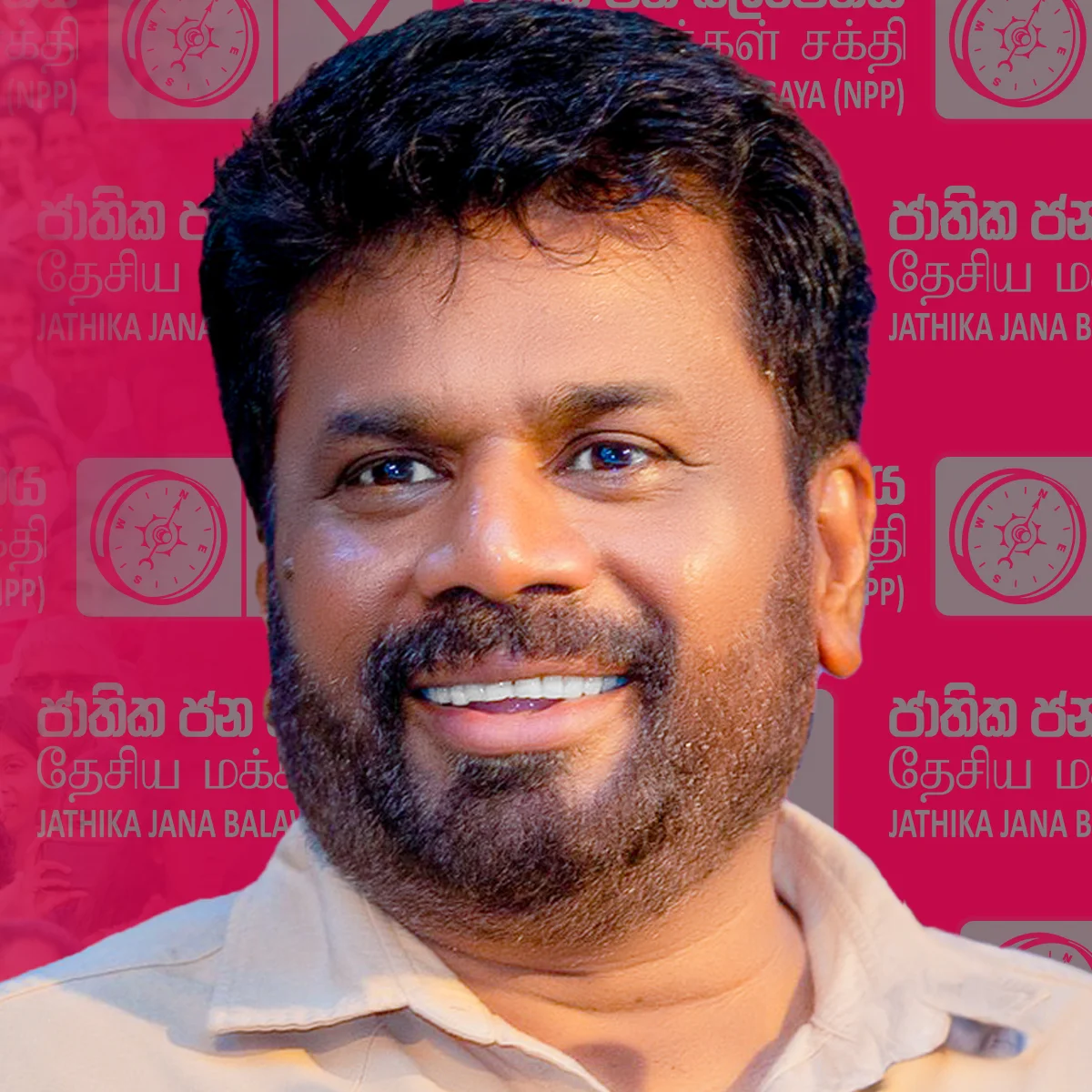 Anura Kumara Dissanayake (Leader)
Anura Kumara Dissanayake (Leader)
 Professor Liyanage Amarakirthi
Professor Liyanage Amarakirthi
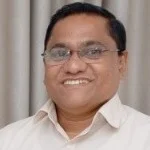 Vijita Herath
Vijita Herath
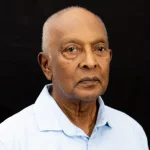 Lal Wijenayake
Lal Wijenayake
 Nimala Siriwardena
Nimala Siriwardena
 Ravi Siriwardena
Ravi Siriwardena
 Asoka Peiris
Asoka Peiris
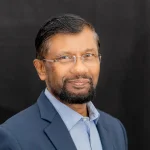 Dr. Nihal Abeysinghe
Dr. Nihal Abeysinghe
 Bimal Ratnayake
Bimal Ratnayake
 Professor Anil Jayantha Fernando
Professor Anil Jayantha Fernando
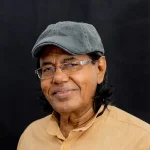 Kamal Perera
Kamal Perera
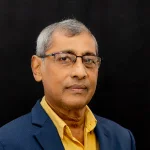 Mahinda Ratnayake
Mahinda Ratnayake
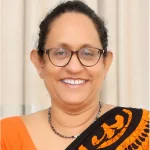 Dr. Harini Amarasuriya
Dr. Harini Amarasuriya
 Professor Vijay Kumar
Professor Vijay Kumar
 Harshana Nanayakkara
Harshana Nanayakkara
 Lal Kantha
Lal Kantha
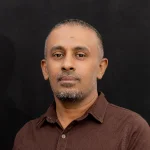 Sheikh Munir Mulaffar
Sheikh Munir Mulaffar
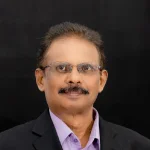 Ajith Hadley Perera
Ajith Hadley Perera
 Sunil Handunneththi
Sunil Handunneththi
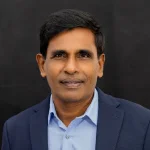 Ananda Wijepala
Ananda Wijepala
 Visakesha Chandrasekharm
Visakesha Chandrasekharm
 Dr. Nalinda Jayathissa
Dr. Nalinda Jayathissa
 Professor Wasantha Subasinghe
Professor Wasantha Subasinghe
 Upul Kumarapperuma
Upul Kumarapperuma
 Professor Chrishantha Abeysena
Professor Chrishantha Abeysena
 Jagath Manuvarna
Jagath Manuvarna
 Muditha Nanayakkara
Muditha Nanayakkara
 Ramalingam Chandrasekar
Ramalingam Chandrasekar
 Saroja Savitri Paulraj
Saroja Savitri Paulraj
 Professor Sunil Senevi
Professor Sunil Senevi
 Kumara Jayakody
Kumara Jayakody
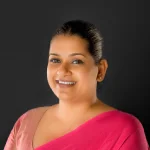 Vraie Cally Balthazar
Vraie Cally Balthazar
 Samantha Vidyaratne
Samantha Vidyaratne
 Professor Jinasena Hevage
Professor Jinasena Hevage
 I. N. Ikram
I. N. Ikram
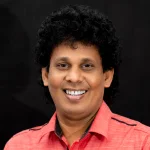 Wasantha Samarasinghe
Wasantha Samarasinghe
 Charith Galhena
Charith Galhena
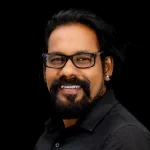 Premaratne Tennakon
Premaratne Tennakon
 Dr. Rizvi Sali
Dr. Rizvi Sali
 Dr. Kaushalya Ariyaratne
Dr. Kaushalya Ariyaratne
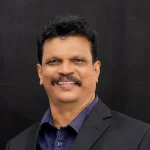 Aruna Shanta Nonis
Aruna Shanta Nonis
 Nihal Galappatti
Nihal Galappatti
 Samanmalee Gunasinghe
Samanmalee Gunasinghe
 Dr. Ajith De Mel
Dr. Ajith De Mel
 Chaminda Jayasuriya
Chaminda Jayasuriya
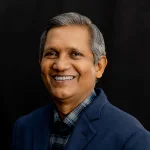 Vijith Rohana
Vijith Rohana
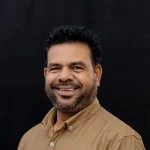 Namal Karunaratne
Namal Karunaratne
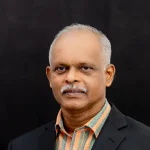 P.D.N.K.Palihena
P.D.N.K.Palihena
 Krishnan Kalaichchelvi
Krishnan Kalaichchelvi
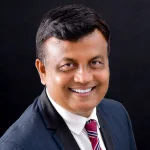 Sunil Vatagala
Sunil Vatagala
 Dr. H.P. dhammika
Dr. H.P. dhammika
 Professor Upali Panilage
Professor Upali Panilage
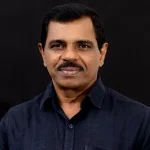 Nalin Hewage
Nalin Hewage
 Chaturanga Abeysinghe
Chaturanga Abeysinghe
 Eranga Weeraratne
Eranga Weeraratne
 Kitnan Selvaraj
Kitnan Selvaraj
 Lakshman Nipunarachchi
Lakshman Nipunarachchi
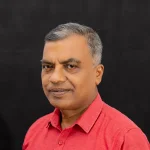 R.M. Jayawardene
R.M. Jayawardene
 Sandun Yaapa
Sandun Yaapa
 Dr. Ashoka Ranwala
Dr. Ashoka Ranwala
 Ravindu Usvatakeiya
Ravindu Usvatakeiya
 Arun Hemachandra
Arun Hemachandra
 Rathne Gamage
Rathne Gamage
 Upali Samarasinghe
Upali Samarasinghe
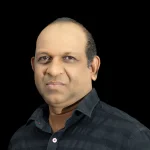 Wasantha Piyathissa
Wasantha Piyathissa
 Mahinda Jayasinghe
Mahinda Jayasinghe
 Eranga Gunasekara
Eranga Gunasekara
 Shantha Padmakumara
Shantha Padmakumara
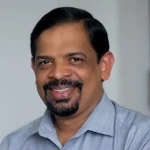 Gamagedara Dissanayake
Gamagedara Dissanayake
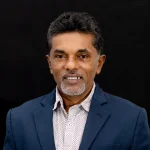 T.B.Sarath
T.B.Sarath
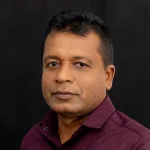 Manjula Suraweera Arachchi
Manjula Suraweera Arachchi
 Dr. Anura Karunathileka
Dr. Anura Karunathileka
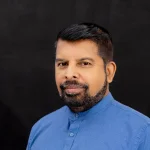 Professor Chandana Abeyrathne
Professor Chandana Abeyrathne
Partner Organizations & Political Parties of NPP
- Janatha Vimukthi Peramuna (JVP Sri Lanka)
- 71 Sahodrathwa Sansadaya (Brotherhood Society of 71)
- Aluth Parapura (New Generation)
- Aluth Piyapath (New Wings)
- Ethera Api
- Mass Guiding Artists
- Public Servants for Public Service (PSPS)
- Janodanaya
- National Bhikkhu Front
- National Intellectuals Organization
- National Trade Union Centre
- Dabindu Collective
- Sri Lanka Communist Party (Alternative Group)
- University Teachers for Social Justice
- Doctors for Social Justice
- Progressive Women’s Collective
- Samabhimani Collective
- Husmata Husmak
- United Left Power
- All Ceylon Estate Workers’ Union
- Inter Company Employees’ Union
Address: 464/20, Pannipitiya Road, Battaramulla, Sri Lanka
Email: contact@npp.lk
Tel: 0112785612, 0777199524, 0714458399
Fax: 0112786050
Rata AnurataA Rich Country – A Beautiful Life
Navigate
PM Modi congratulates Sri Lanka’s Dissanayake for winning presidential elections
September 22nd, 2024Aryan Rai Courtesy India Today
Marxist leader Anura Kumara Dissanayake was declared the winner of the Sri Lankan presidential election by the country’s Election Commission after an unprecedented second round of counting of votes.
Anura Kumara Dissanayake, 56, the leader of the Marxist Janatha Vimukthi Peramuna party’s broader front National People’s Power (NPP), defeated his closest rival Sajith Premadasa of the Samagi Jana Balawegaya (SJB).
In Short
- PM Modi said he looked forward to working together and strengthening cooperation
- Dissanayake was declared winner after second round of counting
- Incumbent Ranil Wickremesinghe was eliminated in first round
Prime Minister Narendra Modi on Sunday congratulated Anura Kumara Dissanayake for his victory in the Sri Lankan presidential election and said he looks forward to working closely with him to further strengthen the Indo-Lanka multifaceted cooperation.
Marxist leader Dissanayake was declared the winner of the Sri Lankan presidential election by the country’s Election Commission after an unprecedented second round of counting of votes.
Dissanayake, 56, the leader of the Marxist Janatha Vimukthi Peramuna party’s broader front National People’s Power (NPP), defeated his closest rival Sajith Premadasa of the Samagi Jana Balawegaya (SJB).
Incumbent president Ranil Wickremesinghe was eliminated in the first round after he failed to come within the top two in the vote list.
“Congratulations @anuradisanayake, on your victory in the Sri Lankan Presidential elections. Sri Lanka holds a special place in India’s Neighbourhood First Policy and Vision SAGAR,” Modi said on X.
“I look forward to working closely with you to further strengthen our multifaceted cooperation for the benefit of our people and the entire region,” the prime minister said.
Who Is Anura Dissanayake ー Sri Lanka’s First Marxist President | What Is His Stance On India?
September 22nd, 2024Harshita Das Courtesy Outlook India
Anura Dissanayake’s victory is a historic moment for his party, Janatha Vimukthi Peramuna, as he becomes the first Marxist leader to assume the presidency in Sri Lanka. This represents a broader shift within Sri Lankan politics.

Anura Kumara Dissanayake Photo: X/@anuradisanayake
On Sunday, Anura Kumara Dissanayake, a Marxist leader and head of the Janatha Vimukthi Peramuna (JVP), was declared Sri Lanka’s next President, marking a historical milestone in the country’s political landscape. Dissanayake, 55, has become Sri Lanka’s first-ever Marxist president after securing 42.31% of the vote in the presidential election held on Saturday.
Dissanayake’s ascent to the presidency represents a remarkable comeback for the JVP, which has historically struggled to gain a foothold in mainstream politics.
Dissanayake’s political journey
Born in Galewela in 1968 and raised in Kekirawa, Dissanayake came from a humble background. He pursued a degree in science at Kelaniya University, where his political journey began as a student leader He joined the Janatha Vimukthi in 1987 Peramuna (JVP) at a time of national upheaval and became a key figure in the party’s decision-making body.
For decades, the JVP had oscillated between rebellion and political participation, marked by violent uprisings in 1971 and again from 1987 to 1990. However, as the political landscape shifted, Dissanayake advocated for a democratic approach, helping to redefine the party’s image and ultimately leading to its rebranding as the National People’s Power (NPP) in 2019.
Fast forward to September 2024. After mass protests that led to the removal of former President Gotabaya Rajapaksa in 2022, people turned to Dissanayake for leadership. His message against corruption and promise of a fresh start resonated, especially with young voters tired of traditional politicians.
His campaign resonated particularly with young voters disillusioned by decades of corruption and mismanagement. Dissanayake’s message of anti-corruption and his vision for systemic change appealed to many who participated in the mass protests that led to the ousting of former president Gotabaya Rajapaksa in 2022. Now operating as the National People’s Power (NPP), his party has shifted focus toward democratic reforms, economic recovery, and social justice, promising a break from the old political norms.
Throughout his campaign, he pressed for the urgent need for substantial reforms in education, public health, and housing. His focus on accountability was clear as he declared that only an un-corrupt force will take action against the corrupt,” highlighting the failures of previous administrations to tackle the country’s economic crises effectively.

Challenges ahead
Historically, the NPP had opposed International Monetary Fund (IMF) programs, but Dissanayake’s approach now includes a willingness to engage with such reforms, albeit with conditions for re-negotiation.
As Dissanayake takes office, he faces immediate challenges, particularly in addressing the country’s dire economic situation. His leadership will be scrutinized as he attempts to reconcile his party’s historical stances with the pressing need for economic reform and international cooperation.
The eyes of a nation eager for change are now firmly on him, as he begins this new chapter in Sri Lanka’s political narrative.
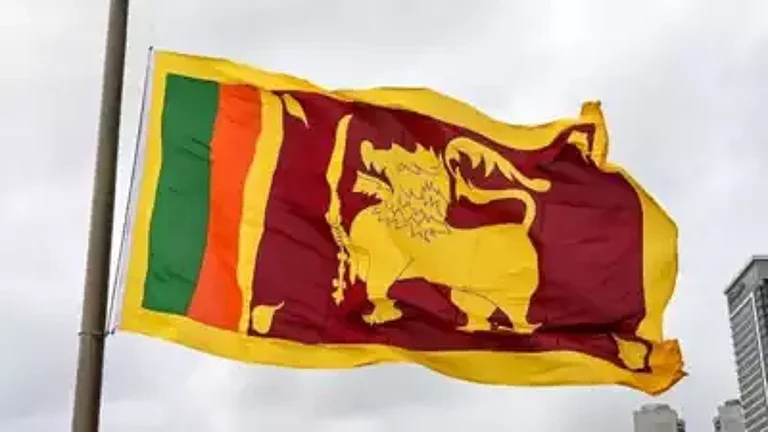
Sri Lanka Presidential Polls Begin; Reflecting On Its 2022 Economic Meltdown & Survival
What does Dissanayake’s win mean for India?
Dissanayake is the leader of the party which has been historically anti-India. As Dissanayake steps into the presidency, he signals a strategic shift in this longstanding position. Despite his party’s history of opposition to foreign influence, particularly from India, he has indicated a willingness to engage diplomatically with international partners.
Recognizing the geopolitical realities of the region, he has expressed a commitment to engaging with India, acknowledging its significant role in Sri Lanka’s development. He also aims to ensure that Sri Lanka’s interests are prioritized in the geopolitical contest between India and China, advocating for a balanced foreign policy that fosters development without compromising sovereignty.
In interviews leading up to his election, Dissanayake has outlined several key policies aimed at fostering constructive relations with India. He has stressed the importance of ensuring that Sri Lankan territories—land, sea, and airspace—are not used in ways that threaten regional stability, reflecting a more collaborative approach. He also acknowledged the necessity of balancing economic measures with India’s support
President Anura Dissanayake, With deepest affection, I entrust to you “the beloved child of Sri Lanka”- President Ranil Wickremesinghe
September 22nd, 2024Hiru News
In a special address, President Ranil Wickremesinghe expressed his deep gratitude to the people of Sri Lanka for the mandate granted during the 21st presidential election. He acknowledged that, in accordance with the will of the people, the leadership of the country should now be passed on to President Anura Dissanayake.
President Wickremesinghe extended his sincere thanks to all those who supported him during his tenure. He reflected on his role as a caretaker, stating that he had guided “the beloved child of Sri Lanka” across significant challenges, symbolized by the “Vine Bridge,” and expressed his confidence that under President Dissanayake’s leadership, the journey will continue safely and successfully.
The full transcript of President Ranil Wickremesinghe’s speech is shown below;
Ayubowan!
Dear Citizens,
The people of the country have given their decision at this Presidential Election held on 21st September 2024. Therefore, we must respect their decision and act according to that mandate to ensure the functioning of the country.
Two years ago, I took over a bankrupt country and a collapsed economy at an extremely turbulent time.
I accepted the challenge at a time when no one else had the courage to face it.
I successfully completed the responsibility that history put upon my shoulders.
I was able to rescue my motherland from bankruptcy within a short period of two years.
I believe this to be the most important thing I could do for my country during my political career.
Inflation was 70% when I took over the country, but I could reduce it to 0.5% during my time as the President.
I increased the Foreign Reserve, which was at USD 20 Million when I came to power, to USD 5.7 Billion.
I was able to ensure that the Sri Lankan Rupee which was 380 against the US Dollar, came down to a strong and solid amount of 300.
Also, when I took over, the economic growth of the country was negative 7.3% (- 7.3%). But I was able to increase it to a positive 2.3% (2.3%). I am happy and proud about it.
I believe that the future generation of the country will give the proper assessment of my historical political role, the way it deserves.
I am aware that my place in history as the ruler of this country will be decided not today but in the future.
I followed the right path and saved people from hunger and sorrow. I hope that the new President will also follow the right path and put an end to the remaining issues that the people are facing.
I was eventually able to carry the dear child called Sri Lanka along a long distance safely – on the dangerous rope bridge.
Close to the very end of the rope bridge, people have decided to hand over the dear child called Sri Lanka to President Anura Dissanayake.
Mr. President, here I hand over to you with much love, the dear child called Sri Lanka, whom we both love very dearly. I wish that you will be able to carry this child away from the bridge to the other bank, even safer than the way I carried the child.
I will be devoted to serving my motherland with or without power, with or without a post or powers, for the rest of my life.<br />I wish to thank everyone who supported me, who did not support me, and all the citizens of the country during my time as President. Thank you.’
Ranil Wickremesinghe,
22nd September 2024.
‘සහය දුන් නොදුන් සැමට ස්තූතියි” ලක් දරුවා අනුරට භාර දී රනිල් යයි
September 22nd, 2024උපුටා ගැන්ම හිරු පුවත්
ජනාධිපතිවරණයේදී ජනතාව දුන් ජනවරම ප්රකාරව අභිනව ජනාධිපති අනුර කුමාර දිසානායකට රට භාරදෙන බව ජනාධිපති රනිල් වික්රමසිංහ නිවේදනයක් නිකුත් කරමින් පවසනවා.
එම නිවේදනයේ සඳහන් වෙන්නේ ශ්රී ලංකාව නමැති ආදරණීය දරුවා මම ඔබට මහත් සෙනෙහසින් භාර දෙමි ” යන්නයි.
පසුගිය 21වැනිදා පැවති ජනාධිපතිවරණයේදී ජනතාව ලබාදුන් ජනවරම ප්රකාරව අභිනව ජනාධිපති අනුර දිසානයක මහතාට රට භාර දෙන්න බවත් තමන්ට සහය දුන් නොදුන් සියලුම දෙනාට ස්තූතිවන්ත වන බවත් ජනපතිවරයා එහිදී පවසා සිටියා.
ශ්රී ලංකාව නමැති ආදරණීය දරුවා තමන් මෙතෙක් ආරක්ෂිතව වැල් පාළමේ ගෙන ආ බවත් අභිනව ජනාධිපතිවරයා යටතේ එම දරුවා වඩා ආරක්ෂිතව වැල් පාලමෙන් එතෙර කරවීමට හැකියාව ලැබේවායි තමන් ප්රාර්ථනා කරන බවත් ජනාධිපතිවරයා සිය නිවේදනයේ වැඩිදුරටත් සඳහන් කර තිබෙනවා.
ජනාධිපති රනිල් වික්රමංහගේ සම්පුර්ණ කතාව පහතින් දැක්වේ.
ආයුබෝවන් , ආදරණීය පුරවැසියනි,
සැප්තැම්බර් 21 පැවති ජනාධිපතිවරණයෙන් මේ රටේ බහුතර ජනතාව තීන්දුවක් ලබා දී තියෙනවා. අපි ඒ තීන්දුවට ගරු කල යුතුයි. ඒ තීන්දුව ප්රකාරව ශ්රී ලංකා රාජ්යයේ යථා පැවැත්ම තහවුරු කල යුතුයි. මීට අවුරුදු දෙකකට කලින් බංකොලොත් වෙලා, ආර්ථික අගාධයකට ඇද වැටී තිබුණ, ඉතාමත්ම අර්බුධකාරී වාතාවරණයකදී මම මේ රට භාර ගත්තා. ඒ අභියෝගයට මුහුණ දීමට තරම් ආත්ම ශක්තියක් බොහෝ දෙනෙකුට නොතිබු අවස්ථාවක තමයි මම ඒ වගකීම භාරගත්තේ. ඉතිහාසය විසින් මට ලබාදුන් ඒ වගකීම මම සාර්ථකව ඉෂ්ඨ කලා. වසර දෙකක් වැනි කෙටි කාලයකදී මේ රට බංකොලොත් භාවයෙන් මුදවා ගන්න මට හැකියාව ලැබුනා. මගේ දේශපාලන ජීවිතයේ මගේ රට වෙනුවෙන් කරන්න ලැබුණු වටිනාම කාර්ය භාරය එය කියලයි මම විශ්වාස කරන්නේ. මම රට භාර ගන්නා අවස්ථාවේදී සියයට හැත්තෑවක්ව පැවති උද්ධමනය බින්දුවයි දශම පහක් (0.5%) දක්වා අඩු කිරීමට මට හැකියාවක් ලැබුණා. ඇමරිකානු ඩොලර් මිලියන විස්සක්ව පැවති මෙරට විදේශ සංචිතය ඇමරිකන් ඩොලර් බිලියන පහයි දශම හසක් දක්වා ඉහළ දැමීමට මට හැකියාවක් ලැබුණා. ඒ වගේම ඩොලරයට සාපේක්ෂව තුන්සීය අසූවක්ව පැවති රුපියලේ අගය රුපියල් තුන්සීයක් දක්වා පහත හෙළමින් ශක්තිමත්, ස්ථාවර අගයකට ගෙන ඒමට මට හැකිවුණා.
එසේම ඍණ හතයි දශම තුනක්ව (-7.3%) පැවති ආර්ථික වර්ධනය ධන දෙකයි දශම තුනක් (2.3%) දක්වා ඉහළ නැංවීමට මා කටයුතු කලා ඒ ගැන මම සතුටු වෙනවා. මගේ ඒ ඓතිහාසික දේශපාලනික කාර්යභාරය ගැන මේ රටේ අනාගත පරපුර නිසි ලෙස තක්සේරුවක් ලබාදෙයි කියලා විශ්වාස කරනවා. මේ රටේ පාලකයා වශයෙන් ඉතිහාසයේ මට හිමි තැන තීරණය වනුයේ අද නොව අනාගතයේ බව මා දන්නවා.
මම නිවැරදි මාර්ගයේ ගිහින් ජනතාවගේ දුක් ගින්දර සෑහෙන දුරකට නිවා දැමුවා. නව ජනාධිපතිතුමාත් ඔහුට ලැබුණු ජනවරම ප්රකාරව නිවැරදි මාර්ගය තෝරාගෙන ජනදුක නිවා දමයි කියලා මම බලාපොරොත්තු වෙනවා.
ඉතාම අභියෝගාත්මක වැල් පාළමේ ශ්රී ලංකාව කියන ආදරණීය දරුවා මම හැකිතාක් උපරිම දුරක් ආරක්ෂිතව රැගෙන ආවා.
වැල් පාලමේ අවසානය පෙනි පෙනී ඒ ආදරණීය දරුවා අනුර දිසානායක ජනාධිපතිතුමාට භාර දීමට රටේ ජනතාව තීරණය කරලා තියෙනවා.
ජනාධිපතිතුමනි, ඔබත් මමත් දෙදෙනාව ආදරය කරන ශ්රී ලංකාව නමැති ආදරණිය දරුවා මම මහත් සෙනෙහසින් ඔබ වෙත භාර දෙනවා. මේ දරුවා මම රැගෙන ආවාටත් වඩා ආරක්ෂිතව වැල් පාලමෙන් එතෙර කරවීමට ඔබට හැකිවේවායි මම ප්රාර්ථනා කරනවා.
5 Facts About Anura Kumara Dissanayake, Man Likely To Become Sri Lanka President
September 22nd, 2024World NewsEdited by NDTV News DeskUpdated: September 22, 2024 2:35 pm IST
Anura Kumara Dissanayake became involved in the Janatha Vimukthi Peramuna (JVP) during his school years and fully engaged in politics during the 1987-1989 JVP insurrection.

Anura Kumara Dissanayake was born on November 24, 1968, in Thambuththegama.
Sri Lanka’s Marxist-leaning leader Anura Kumara Dissanayake has taken a commanding lead in the presidential election, winning approximately 53 per cent of the counted votes. According to Sri Lanka’s Election Commission, Dissanayake, contesting for the National People’s Power alliance, surpassed opposition leader Sajith Premadasa (22 per cent) and President Ranil Wickremesinghe.
Here are some facts about Anura Kumara Dissanayake:
- Anura Kumara Dissanayake was born on November 24, 1968, in Thambuththegama, Sri Lanka. His father was a labourer, and his mother was a housewife. He attended local schools and was the first from his college to get admission into University.
- Dissanayake became involved in the Janatha Vimukthi Peramuna (JVP) during his school years and fully engaged in politics during the 1987-1989 JVP insurrection. He initially studied at the University of Peradeniya but left due to threats, later graduating from the University of Kelaniya in 1995 with a degree in physical science.
- Anura Kumara Dissanayake rose through the ranks of the JVP, becoming a key figure in the party’s leadership. In 1995, he was appointed National Organiser of the Socialist Students Association and joined the JVP’s Central Working Committee. By 1998, he secured a prominent position in the JVP Politburo. During this time, the JVP re-entered mainstream politics under Somawansa Amarasinghe and initially supported Chandrika Kumaratunga’s government, though they soon became vocal critics of her administration.
- In 2004, Dissanayake became a cabinet minister in President Chandrika Kumaratunga’s government, handling agriculture, livestock, land, and irrigation. However, in 2005, he and other JVP ministers resigned in protest against a joint agreement between the government and the LTTE for tsunami relief coordination.
- Dissanayake became the JVP’s leader in 2014, succeeding Somawansa Amarasinghe, and ran as the JVP’s presidential candidate in 2019, finishing third with 3 per cent of the votes. He announced another presidential bid for the 2024 elections under the National People’s Power (NPP). Known for his critical stance on Sri Lanka’s economic policies, Dissanayake has opposed IMF conditions, advocating for renegotiations to reduce taxes like the Pay-As-You-Earn tax and eliminate VAT on essential items. His policies focus on increasing social welfare and supporting businesses through targeted taxation reforms.
Anura Kumara to take oaths as president tomorrow
September 22nd, 2024Daily Mirror
Colombo, September 22 (Daily Mirror) – After the Election Commission announces the NPP presidential candidate Anura Kumara Dissanayake as the winner of the 2024 presidential election later today, Daily Mirror learns that Dissanayake will take oaths as the new president at a simple ceremony held at the Presidential Secretariat tomorrow morning (23)..
Anura Kumara likely to be sworn in as President later on Sunday: NPP
September 21st, 2024Courtesy The Daily Mirror
Colombo, September 22 (Daily Mirror)- NPP leader Anura Kumara Dissanayake could be sworn in as the new President later today if the final announcement declaring him as the winner is made by the Elections Commission on time, a party source told Daily Mirror.
NPP General Secretary Dr. Nihal Abeysinghe told the Daily Mirror that the time for the swearing in cannot be confirmed due to the delay in issuing the results.
“If the final announcement is made on time, the swearing in could take place today,” he said.
Ali Sabry and Harsha congratulate Anura Kumara
September 21st, 2024Courtesy Adaderana
Samagi Jana Balawegaya (SJB) Parliamentarian Dr. Harsha de Silva has congratulated the National People’s Power (NPP) presidential candidate Anura Kumara Dissanayake.
In a post on ‘X’ (formerly Twitter), the former Deputy Minister said they campaigned hard for SJB’s presidential candidate Sajith Premadasa, and that however it was not to be”.
It is now clear Anura Kumara Dissanayake will be the new President of SriLanka.”
Dr. de Silva stated that in the spirit of democracy and goodwill he called and wished Dissanayake the best in the arduous road ahead”.
Meanwhile, Sri Lanka’s Foreign Minister Ali Sabry has also extended his best wishes to NPP candidate Dissanayake.
In a post on ‘X’ (formerly Twitter), he said the following;
After a long and arduous campaign, the results of the election are now clear. Though I heavily campaigned for President Ranil Wickremasinghe, the people of Sri Lanka have made their decision, and I fully respect their mandate for Anura Kumara Dissanayake. In a democracy, it is crucial to honor the will of the people, and I do so without hesitation.
I extend my sincere congratulations to Mr. Dissanayake and his team. Leading a country is no easy task, and I genuinely hope that their leadership brings Sri Lanka the peace, prosperity, and stability it so deeply deserves. The challenges they will face are immense, and I trust they will reflect on the lessons of the past—both the successes and failures of those who have held power before them. History teaches us that the real challenge is not in winning an election, but in governing wisely and staying true to the needs of the people.
Too often, those who have won elections in the past lost sight of the promises they made and missed the opportunity to bring real change. I hope Mr. Dissanayake and his team learn from these past mistakes and lead with a commitment to transparency, integrity, and the long-term good of the country.
I wish Mr. Dissanayake and his team every success in their efforts to lead Sri Lanka forward.”
Sri Lanka’s Dissanayake in early lead to become president
September 21st, 2024Courtesy cna
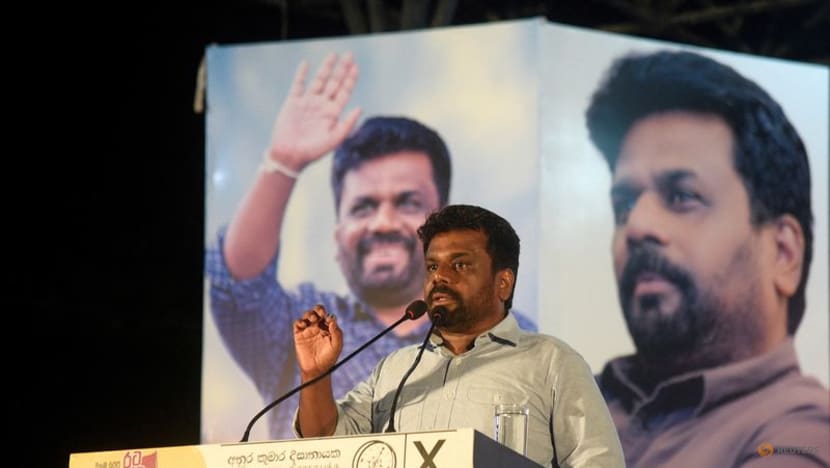
22 Sep 2024 07:35AM(Updated: 22 Sep 2024 08:43AM)
WhatsAppTelegramFacebookTwitterEmailLinkedIn
COLOMBO: Sri Lanka’s Marxist-leaning leader Anura Kumara Dissanayake grabbed a commanding early lead on Sunday (Sep 22) in his bid to become the next president of the debt-ridden country seeking to elect a leader to bolster its fragile economic recovery.
Early results from Saturday’s vote strongly suggested that the 55-year-old would become the first leftist commander-in-chief and head of state of the small but strategically placed island nation.
The election pits Dissanayaka against President Ranil Wickremesinghe and rival candidate Namal Rajapaksa, whose campaign conceded defeat early Sunday.
About 76 percent of the 17.1 million-person electorate turned out to vote, officials said, with final results expected later Sunday.
Dissanayaka’s strong showing in the postal ballot, considered an accurate indication of the entire electorate, boosted expectations that he would win.
Election officials said Dissanayaka had won 58 per cent of postal votes, with about a third of ballots counted.
In previous polls, candidates who garnered more than 50 per cent of the postal ballot have gone on to win the presidency.
Rajapaksa’s aides said Dissanayaka had won the vote.
“Anura Kumara Dissanayaka has won the election,” Rajapaksa’s campaign aide Milinda Rajapaksha said on Facebook, adding: “Namal Rajapaksa won politics.”
The 38-year-old scion of the once powerful Rajapaksa clan entered the fray as a dress rehearsal for the 2029 presidential poll, sources close to him told AFP.
Sri Lanka’s Foreign Minister Ali Sabry, a close ally of Wickremesinghe, also said Dissanayaka had won.
“After a long and arduous campaign, the results of the election are now clear,” Sabry said on X.
“Though I heavily campaigned for President Ranil Wickremasinghe, the people of Sri Lanka have made their decision, and I fully respect their mandate for Anura Kumara Dissanayaka.”
There was no immediate reaction from Wickremesinghe, but he declared an eight-hour curfew despite the independent Election Commission describing Saturday’s vote as the most peaceful in the country’s electoral history.
Police said the curfew was “an additional measure to protect people”.
Earlier in the day, the government declared Monday would be a special public holiday.
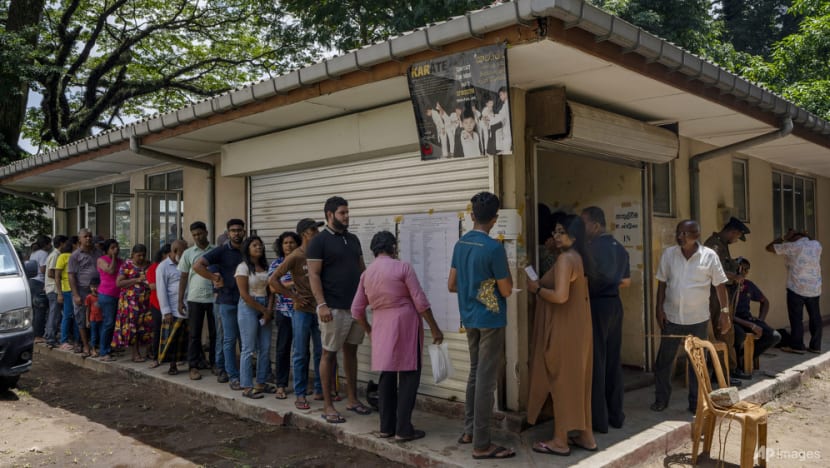
“NO VIOLENCE”
Wickremesinghe is seeking re-election to continue belt-tightening measures that have stabilised the economy and ended months of food, fuel and medicine shortages after Sri Lanka’s worst economic meltdown in 2022.
His two years in office restored calm to the streets after civil unrest spurred by the downturn saw thousands storm the compound of his predecessor Gotabaya Rajapaksa, who fled the country as anger mounted.
“I’ve taken this country out of bankruptcy,” Wickremesinghe, 75, said after casting his ballot.
But Wickremesinghe’s tax hikes and other measures, imposed under the terms of a US$2.9-billion International Monetary Fund (IMF) bailout, have left millions struggling to make ends meet.
Dissanayaka’s once-marginal Marxist party led two failed uprisings in the 1970s and 1980s that left more than 80,000 people dead, and it won less than 4 per cent of the vote in the most recent parliamentary elections, held in August 2020.
But Sri Lanka’s crisis has proven an opportunity for Dissanayaka, who has seen a surge of support based on his pledge to change the island’s “corrupt” political culture.
He said at a polling station he was confident of securing the top job.
“After the victory there should be no clashes, no violence,” he said. “Our country needs a new political culture.”
Fellow opposition leader Sajith Premadasa, 57, the son of a former president assassinated in 1993 during the country’s decades-long civil war, was expected to be in second position.
Premadasa has vowed to fight endemic corruption. Both he and Dissanayaka have pledged to renegotiate the terms of the IMF rescue package.
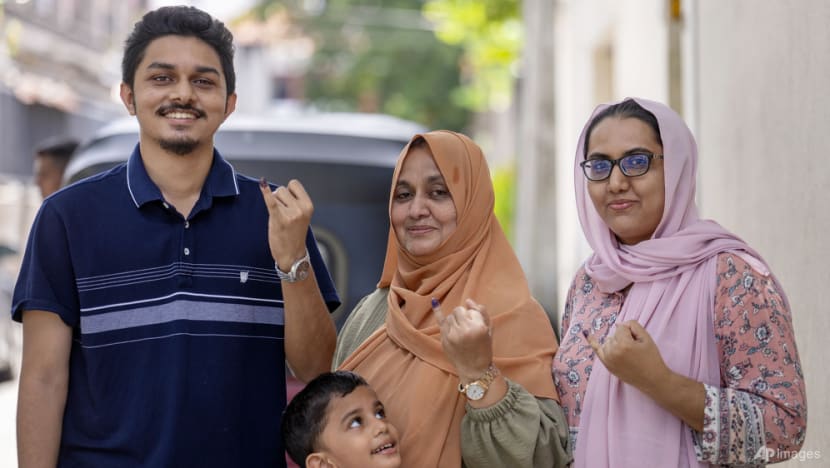
THREE-WAY RACE
Earlier in the day, political analyst Kusal Perera told AFP it was difficult to predict a winner from the three-way race – the first in the island’s history.
The government has banned the sale of liquor over the weekend and said no victory rallies or celebrations would be permitted until a week after the final results.
Economic issues dominated the eight-week campaign, with public anger widespread over the hardships endured since the peak of the crisis two years ago.
Official data showed that Sri Lanka’s poverty rate doubled to 25 per cent between 2021 and 2022, adding more than 2.5 million people to those already living on less than US$3.65 a day.
Experts warn that Sri Lanka’s economy is still vulnerable, with payments on the island’s US$46 billion foreign debt yet to resume since a 2022 government default.
The IMF said reforms enacted by Wickremesinghe’s government were beginning to pay off, with growth slowly returning.
But the country was also warned that it was not out of the woods yet.
Source: Agencies/zl
Sri Lanka Marxist candidate takes early lead in presidential vote
September 21st, 2024Courtesy The Straits Times
COLOMBO – Sri Lanka’s Marxist politician Anura Kumara Dissanayaka took an early lead in the Sept 21 presidential election during the counting of postal ballots, official results showed.
Mr Dissanayaka had 60.21 per cent of the 164,000 votes counted, out of just over 700,000. Public servants involved in conducting the election are entitled to post their ballots, which are the first to be counted.
About 76 per cent of the 17.1 million person electorate turned out for the Sept 21 vote, and final results are expected later on Sept 22.
The election has turned into a referendum on incumbent President Ranil Wickremesinghe’s austerity measures, implemented in line with a US$2.9 billion (S$3.7 billion) bailout loan he secured from the IMF early in 2023.
Mr Dissanayaka, 55, had vowed to renegotiate the unpopular IMF agreement under which Mr Wickremesinghe had doubled income taxes, removed energy subsidies and raised prices.
The initial results showed opposition leader Sajith Premadasa had 19.98, almost neck-and-neck with Mr Wickremesinghe who had 18.59 per cent.
If elected, Mr Dissanayaka would be Sri Lanka’s first Marxist head of state
The authorities declared an eight-hour evening curfew across the country while results were being announced via manual counts, as Sri Lanka does not have electronic voting.
Mr Wickremesinghe is seeking a fresh term to press ahead with his austerity measures after claiming credit for stabilising the economy after a crushing default on the national debt in 2022. AFP
Anura Kumara Dissanayake maintains lead in postal voting results
September 21st, 2024Courtesy Hiru News
As per the postal voting results published so far, National People’s Power (NPP) candidate Anura Kumara Dissanayake continues to lead with a total of 125,999 votes (57.34%).
The current vote distribution is as follows:
Anura Kumara Dissanayake: 125,999 votes (57.34%)
Ranil Wickremesinghe: 42,307 votes (19.34%)
Sajith Premadasa: 40,595 votes (18.56%)
Namal Rajapaksa: 3,970 votes (1.81%)
Pakkiyaselvam Ariyanethiran: 1,677 votes (0.77%)
Sri Lanka records 75% voter turnout in 2024 Presidential Election
September 21st, 2024Courtesy Adaderana
The voting for the presidential election to elect the 9th Executive President of Sri Lanka was held today (21).
The Election Commission says that counting of votes has already started and the first results of the 2024 presidential election, which commenced today (21), will be released before 12.00 midnight.
The Commissioner General of Elections Saman Sri Ratnayake described the 2024 Presidential Election as the best in the nation’s electoral history, emphasizing that the election process was notably peaceful, with no reports of violence during the polling period.
A total of 17,140,354 Sri Lankans were eligible to vote, with the Gampaha District registering the highest number of voters with 1,881,129.
Voting took place at 13,421 polling stations across the island from 7:00 a.m. to 4:00 p.m. today (21).
Voters had arrived at polling stations early this morning to cast their valuable votes. According to Ada Derana reporter, despite adverse weather conditions, voters in some areas showed increased enthusiasm for participating in the election.
Election officials reported that approximately 75 percent of the total electorate turned out to vote in this year’s presidential election.
Accordingly, the voter turnout percentages of several districts at the close of polls are as follows:
Nuwara-Eliya – 80%
Monaragala – 77%
Polonnaruwa – 78%
Ratnapura – 75%
Gampaha – 80%
Colombo – 75%
Ampara – 70%
Kilinochchi – 68%
Puttalam – 75%
Kalutara – 75%
Galle – 74%
Vavuniya – 72%
Mannar – 72%
Badulla – 73%
Hambantota – 78%
Kegalle – 75%
Anuradhapura – 75%
Batticaloa – 69%
Kurunegala – 75%
Mullaitivu – 68%
Kandy – 78%
Ampara – 70%
Trincomalee – 76%
Matale – 74%